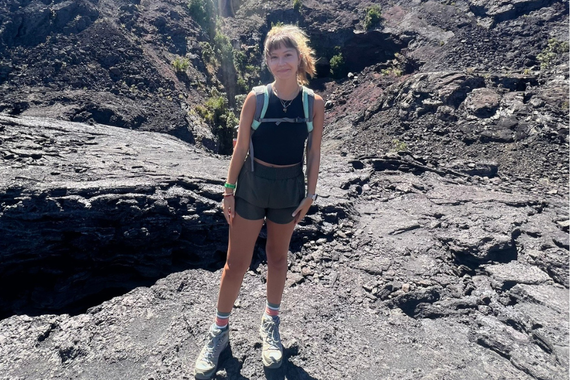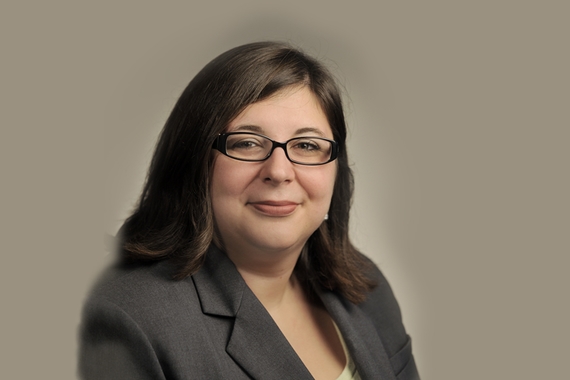Moments Made Possible: Stroud Scholar Stories
In 2011, the late Myrtle and Charles Stroud made a lasting impact on CLA and its students. Myrtle, a former schoolteacher, and Charles, a Minnesota businessman, gave the largest gift in CLA's history—$14 million—to establish the Charles and Myrtle Stroud Scholarship. Their estate gift makes education and invaluable experiences possible for hundreds of CLA students each year.
Thirteen years later, Myrtle and Charles’ generosity has ripple effects. Three Stroud Scholars share the moments and learning experiences the Strouds’ support made possible.
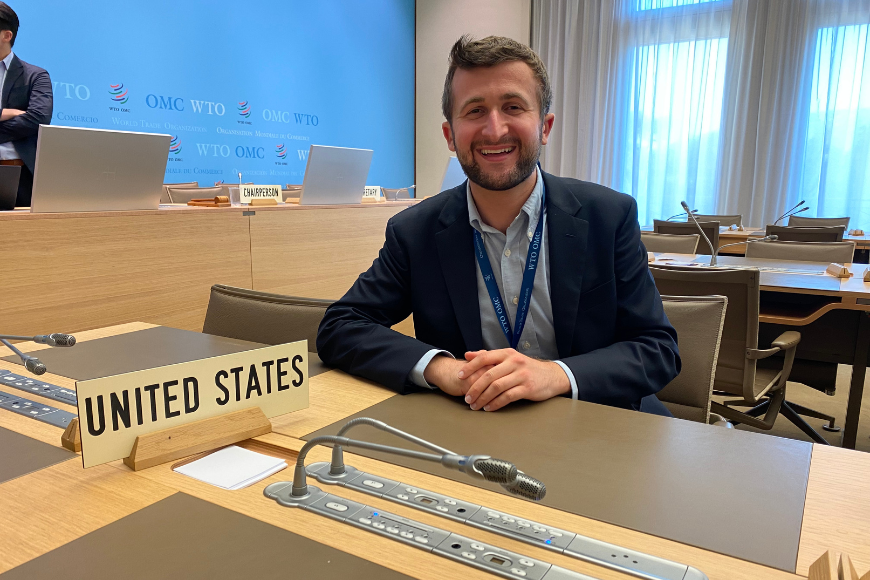
A Path to Policy: Tyler Hubler
Hometown: Cedar Rapids, Iowa
Graduation Year: 2014, with summa cum laude honors
Major: Political Science
Minors: economics and Asian Languages and Literatures (Arabic)
Where do you currently live and work?
I live in Arlington, Virginia, and work as a lead trade policy officer for Central and South America at the US Department of Agriculture's Foreign Agricultural Service in Washington, DC.
What inspired you to pursue your major?
Growing up in Iowa, I had opportunities to attend a couple of Iowa caucuses and see firsthand the unique combination of retail politics practiced by presidential candidates as they crisscrossed the state and the attention that Iowa voters paid to both domestic and international policy issues. I also had some great social science teachers in high school who encouraged me to explore a major in political science in college. When I started at the University of Minnesota, I was able to take a class my first semester co-taught by the late Vice President Walter Mondale and Professor Larry Jacobs on critical constitutional and political crises/moments in US history. I was immediately sold on my major after that class!
How did your Stroud Scholarship impact your time in CLA and beyond?
Having scholarship support from CLA was important to ensure that college remained affordable for me and my family. With financial support, I was able to strike a balance between working a part-time campus job, my studies, extracurricular activities, and saving money for a study abroad program to Oman during my sophomore year. Without those opportunities, my college experience wouldn’t have been the same.
How has your liberal arts education provided a foundation for what you do now?
My liberal arts education provided the critical and analytical foundations that would carry me through a graduate program in international affairs and eventually into a policy-focused career in the federal government. For a policy career in federal government, it takes not only strong analytical and writing skills, but a curiosity to continue on a path of lifelong learning to keep pace with our ever-changing world. The U sparked that curiosity for me and provided opportunities for me to consider an international policy-focused career through a summer internship in Washington, DC and my study abroad in the Middle East.
What is your favorite memory from the U?
I was very active in the Minnesota Student Association (MSA) and its student lobbying organization, the Minnesota Student Legislative Coalition, during my time at the U. I enjoyed helping organize the annual Support the U Day at the Minnesota State Capitol to ensure that student voices were heard at the Capitol on issues like college affordability and medical amnesty for minors (which passed into law in Minnesota as a result of MSA's efforts).
Through MSA, I also had the opportunity to travel to Washington, DC with other Big 10 students and lobby our members of Congress and their staff on our legislative agenda. Those experiences certainly sowed the seeds for my interest in a public service career with the federal government in DC.
For a policy career in federal government, it takes not only strong analytical and writing skills, but a curiosity to continue on a path of lifelong learning to keep pace with our ever-changing world. The U sparked that curiosity for me and provided opportunities for me to consider an international policy-focused career through a summer internship in Washington, DC and my study abroad in the Middle East.
Tyler Hubler
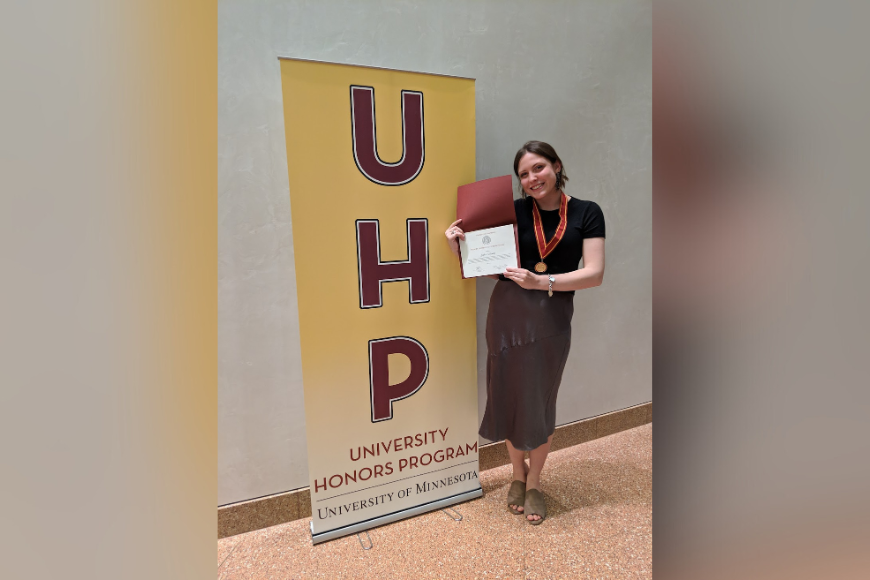
A Degree for Exploration: Sophia Vilensky
Hometown: New Prague, Minnesota
Graduation Year:2019, with summa cum laude honors
Major: English
Minor: Studies in Cinema & Media Culture
Where do you currently live and work?
Last Halloween, I bought the cutest house in Chanhassen—I was struck by the ‘burb while covering Paisley Park’s public opening for the Minnesota Daily during my sophomore year. I work from home as a beauty, wellness, and entertainment writer; I regularly contribute to Bravo, Marie Claire, and Byrdie, filling up the rest of my time with freelance stories for other publications and/or copywriting work.
What was one defining experience from your time as a CLA student?
I will never ever forget the best class of my life: my favorite professor—and later thesis advisor—the brilliant late Qadri Ismail, brought in a copy of Us Weekly and had us close-read Marion Cotillard’s statement on her alleged affair with Brad Pitt. It combined so many of my favorite things—gossip, celebrity, literature analysis—and proved once and for all that frivolous pursuits contain plenty of substance. The big question that day wasn’t what the statement was saying, but what it wasn’t saying and what that communicated. These close reading skills improved my own writing and come in handy every day. Though, I’ve learned that you shouldn’t put too much stock into your boss forgoing an emoji.
What was the impact of your Stroud Scholarship? How did it influence your time in CLA and beyond?
The Stroud Scholarship hugely impacted my decision to go to the U. I had big East Coast private school dreams, but after careful consideration (see: my mom being like “Honey, be reasonable”) I decided I couldn’t pass up the gift of financial aid. While I worked through college, the Stroud Scholarship allowed me to spend a semester abroad [during] junior year and fully enjoy it without worrying about heading to my after-school job(s).
As silly as it sounds, writing my yearly thank-you letter was also impactful. It gave me a chance to assess where I was in my college journey, take stock of my accomplishments, and feel like someone was rooting for me along the way.
How has your liberal arts education provided a foundation for what you do now?
These days, my whole life is still liberal arts. I dabble in many subjects. Although it was never my focus, my required science classes gave me plenty of background information for science-based skincare and beauty stories I’ve worked on. Most importantly, though? It feels like I have connections everywhere, and I can always find something to talk about with someone. I’m well-rounded, I think. I hope?
What advice would you give to prospective students?
Take classes that sound interesting to you! Even if they have nothing to do with your other work, the knowledge will come in handy someday.
As silly as it sounds, writing my yearly thank-you letter was also impactful. It gave me a chance to assess where I was in my college journey, take stock of my accomplishments, and feel like someone was rooting for me along the way.
Sophia Vilensky
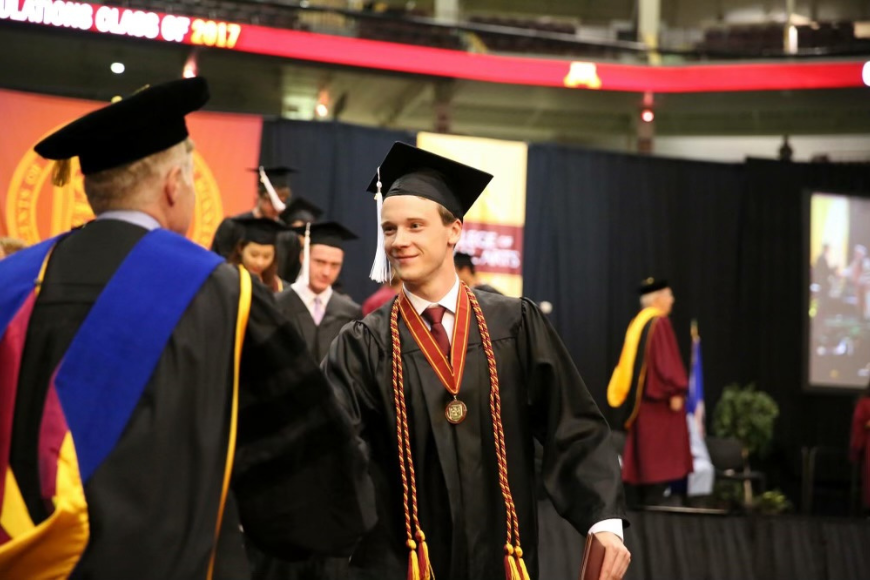
A Learning Community: Henry Zurn
Hometown: Eden Prairie, Minnesota
Graduation Year: 2017
Majors: English and Political Science
Where do you currently live and work?
I live in Minneapolis with my fiancé, and I work as an attorney at a law firm downtown.
What brought you to the University of Minnesota?
I applied all over the place, and I was accepted into some schools I was really excited about at the time, but they just didn’t make sense for my family and me financially. That left me with some sore feelings, but at the time I think I underestimated the resources available at the U and the opportunities an education from a flagship public university would offer. I very quickly found myself loving my classes and finding real community. I couldn’t be happier with the years I spent at the U.
What inspired you to pursue your major?
I wanted to become a good writer, and I understood that there were lots of courses of study within CLA that would support that. In my first year, I sampled classes that sounded interesting in a handful of departments. I was particularly impressed by the rigor of my English and political science courses, and I was interested in the subjects offered. The next semester I registered for a few more, and soon enough those were my majors.
How did your Stroud Scholarship impact your time in CLA and beyond?
I didn’t have a strong sense of what I wanted to study when I arrived at the University, and the scholarship allowed me to focus on finding the subjects that interested me as opposed to those that would set me up more specifically for a job upon graduation. That financial flexibility allowed me to find a career that I find both meaningful and fulfilling today.
What is your favorite memory from the U?
More than anything specific, the best thing about my time at the U was the relationships I developed there — with professors and classmates, certainly, but mostly with peers who were pursuing completely different areas of study and interests than I was. I lived in the honors community during my freshman year, and I was impressed by the breadth of interests my peers were bringing to their education from the very start.
Of the lifelong friends I made at the U, most studied business, engineering, teaching, or agriculture. Reflecting on it now, those relationships really enhanced the breadth of my own liberal arts education.
I didn’t have a strong sense of what I wanted to study when I arrived at the University, and the scholarship allowed me to focus on finding the subjects that interested me as opposed to those that would set me up more specifically for a job upon graduation. That financial flexibility allowed me to find a career that I find both meaningful and fulfilling today.
Henry Zurn
This story was edited by Cass Bryant, an undergraduate student in CLA.
